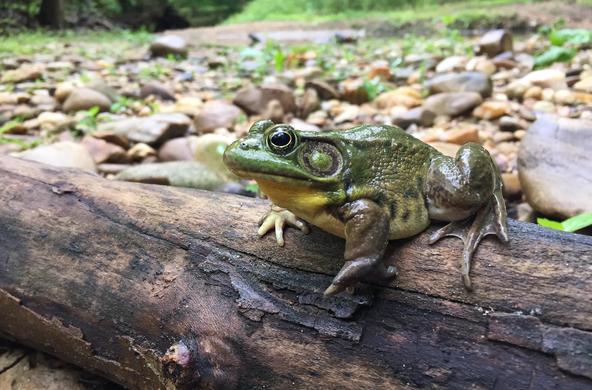
The rise of antibacterial products has come with a hidden cost to human health and the environment. Around half of liquid soaps now contain the chemical, as do toothpastes, deodorants, cosmetics, and other personal care products. It’s become a billion dollar industry.
Studies have linked triclosan exposure to a suite of health problems, from hormone disruption and early puberty to a rise in allergies. Most people pick up residues when using oral care products, soaps, and washes that contain the synthetic chemical. And if that wasn’t bad enough, when triclosan washes down our drains, it goes on to pollute freshwaters.
In streams across the United States, triclosan is one of the most frequently detected chemicals. High concentrations in sediments and sewage sludge can persist for decades.
Dr. Emma Rosi-Marshall is an aquatic ecologist at the Cary Institute of Ecosystem Studies.
“While the effects of triclosan (on) aquatic ecosystems is still not well known, but because it’s a generalized antimicrobial, it is known to have negative consequences for algae and for bacteria. In addition, it’s been found in sediments. It accumulates in sediments because it does not degrade very readily. It’s also been found in fish tissue and actually all the way up into dolphin tissue in the Atlantic.”
The best bet? Avoid personal care products that contain triclosan. It’s not essential. And a comprehensive study found that soaps with triclosan were no more effective at preventing illness than plain soap.
There are safer alternatives – for yourself and the environment.






